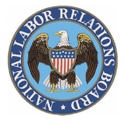The Obama Administration strongly opposes H.R. 1120, which would prohibit members of the National Labor Relations Board (NLRB) duly appointed by the president from taking any action.
If the president is presented with legislation that would undermine the functions of the National Labor Relations Board, his senior advisors will recommend that he veto the bill.
H.R. 1120 was introduced March 13 by Rep. David P. Roe (R-Tenn.) and has 25 co-sponsors.
The Obama administration said “This legislation hurts middle-class and working families, weakens the economy and undermines America’s economic competitiveness.
“H.R. 1120 would needlessly place the rights of millions of American workers in jeopardy and erode financial security and economic opportunity for middle class and working families. The National Labor Relations Act charges the NLRB with preventing and remedying unfair labor practices and defending the right of employees to join a union and bargain collectively with their employers.
“These protections are fundamental to growing the economy and creating jobs from the middle class out by ensuring better wages and working conditions for American workers and an open, fair, and prosperous economy for all.
“The Administration rejects the premise of this legislation, as the NLRB properly continues to act while courts resolve legal challenges to the President’s recess appointments, which the Administration believes are valid and constitutional.
“By depriving the NLRB of statutory authority, H.R. 1120 would compromise the President’s constitutional authority to make recess appointments.
“The legislation poses additional constitutional concerns because it would effectively remove the President’s recess appointees from office, authority that resides with the President. Rather than attempting to pass unfounded legislation such as H.R. 1120, the Congress should swiftly confirm the President’s nominees to the Board, which would resolve a situation that is of the Congress’s own making.”

